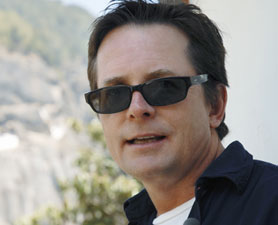Last week, I presented on Jewish innovation at the Milken School, a Jewish community high school in Los Angeles – it marked the first time I’d been “back to high school” in, well, more years than I’d care to admit. (“Ten?” someone guessed. “Sure,” I said.)
Before my session, I sat in on a discussion about faith in God. One of the students said, “I’m 15. I don’t know what I believe in.” That got me thinking about where my own theology was at 15, and I just can’t recall. I’m pretty sure I believed in John Hughes: that a boy I liked but never spoke to would eventually ask me to our secret yeshiva prom and we’d live happily ever after (or at least until the end credits rolled). As far as a future, I believed somewhat vaguely that I was meant to do something, probably through writing. My faith in God, or in tradition, wasn’t so much faith as it was a cross between education, indoctrination, socialization and routine.
Can someone who’s 15 articulate what s/he believes in and craft a theology independent of social or family influences? As someone who was formerly a 15-year-old articulator of everything she believed in (at least in the privacy of her own journals), I believe that she was really saying, I don’t know if my beliefs now are going to be my beliefs forever. And that’s fair, because faith – as steadfast as we’d like to believe it is – is fluid: impacted by environment, aging, life experiences.
Another 15-year-old, hiding in an attic in Amsterdam, once noted that “in spite of everything,” she believed “that people are basically good at heart.” While not a declaration of belief in a one true God, it’s clearly a mission statement. Anne Frank, much more socially and emotionally isolated than most teens of her age, was able to make that statement, which was then flash-frozen in time by her death and subsequent Broadway and film productions of her story.
But many who have read the diary in its complete, non-Broadwayified state see this optimism as a flash that was by no means her day-to-day theology in the secret annex. (I recommend Francine Prose’s Anne Frank: The Book, The Life, The Afterlife or the new BBC production of “The Diary of Anne Frank” for a more complete context of Anne Frank’s story.) Even in isolation, Anne Frank was still 15, and in many ways, more under the thumb of parental control than today’s teens are. Perhaps that moment of sunniness was a necessary blinder that reflected a hope for the residents of the annex: if they were to occasionally repeat that things would get better, perhaps they’d be able to both believe it and make it come true.
Today, I have friends who describe themselves as having a deep belief in God and Jewish tradition, and others who describe themselves as atheists who still value Jewish tradition and community. As for me? I do see value in community and in family. As for faith itself, sometimes it is strong. And at other moments, I feel like nothing means anything. Imagine that: I’m not even 15 anymore.


